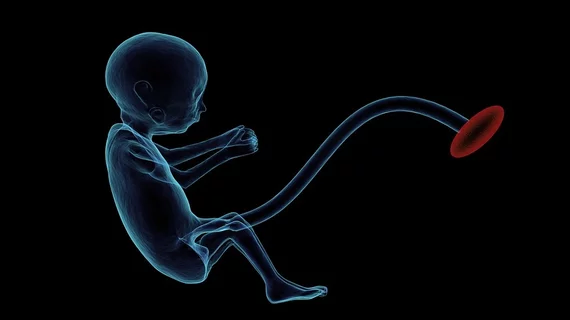Japanese researchers use AI to detect fetal heart problems
A Japanese research group has developed a system that uses AI to automatically detect abnormalities in fetal hearts from ultrasound images.
To create the “Fetal Heart Screening,” the research team—led by the RIKEN Center for Advanced Intelligence Project (AIP)—trained the newly-developed system by using normal ultrasound heart images to annotate correct positions of 18 different parts of the heart and peripheral organs. If the system spots a difference between the test and learned data, it then decides if there is an abnormality. The process happens in real-time, with results appearing immediately on an examination screen.
"This breakthrough was possible thanks to the accumulated discussions among the experts on machine learning and fetal heart diagnosis. RIKEN AIP has many AI experts and opportunities for collaboration like this project. We hope that the system will go into widespread use by means of the successful cooperation among clinicians, academia and the company," Masaaki Komatsu, lead project researcher with RIKEN AIP, said in a statement.
The project is a result of the recent growth of AI solutions being incorporated into healthcare, the researchers said in a press release. Imaging in particular has seen an explosion in interest for AI uses.
Typically, a good prognosis for babies with congenital heart problems depends heavily on early diagnosis and prompt treatment within their first week of being born. Congenital heart problems also account for about 20 percent of all newborn deaths.
Thanks to AI and machine learning, diagnostic systems can detect diseases more rapidly than humans with adequate datasets for normal or abnormal subjects for specific diseases. But because congenital heart problems are rare, there weren’t any complete datasets—that is until the research group’s new system, which can make predictions using relatively small and incomplete datasets.
“In general, experts of fetal heart diagnosis seek to find whether certain parts of the heart, such as valves and blood vessels, are in incorrect positions, by comparing normal and abnormal fetal heart images based on their own judgement,” the release stated. “The researchers found that this process is similar to the ‘object detection’ technique, which allows AIs to distinguish the position and classify multiple objects appearing in images.”
Researchers believe the newly-developed system can harmonize diagnoses among different hospitals with different levels of medical expertise or equipment and plan to conduct clinical trials at university hospitals in Japan. The hope is that a larger number of ultrasound images added to the system will help the AI learn more and improve its screening accuracy.
“Implementing this system could help correct medical disparities between regions through the training of examiners or by remote diagnosis using cloud-based systems,” the release stated.

